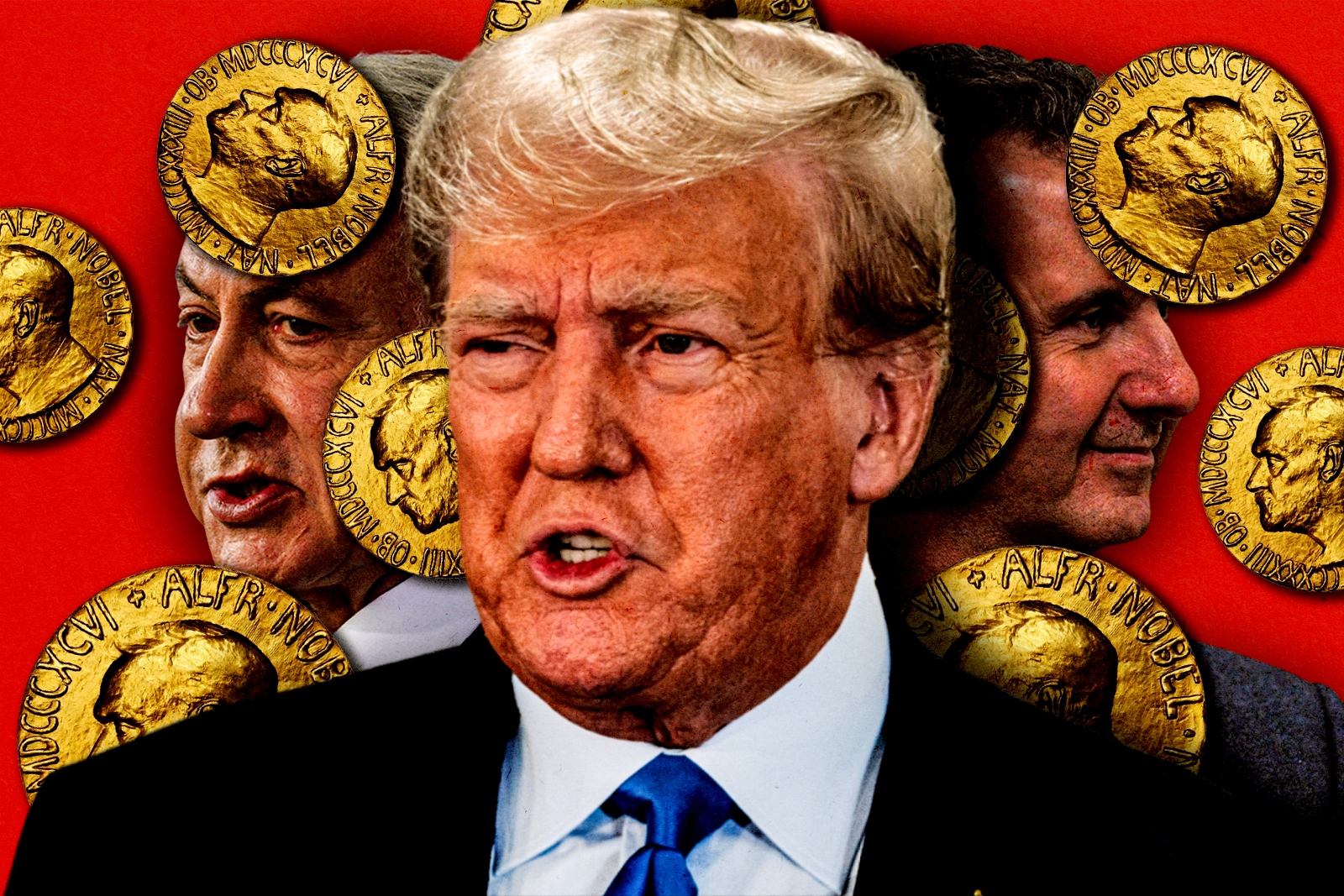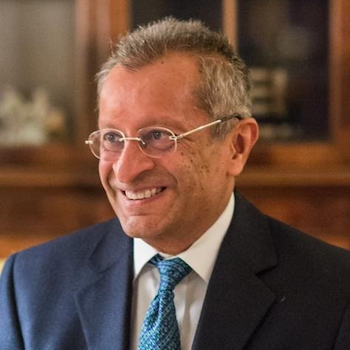
The Fall of Assad: Trump’s Unexpected Shot at a Long-Coveted Nobel
What will a second Trump presidency mean for the Middle East? It’s a question that elicits more speculation than clarity, but the sudden collapse of the Assad regime in Syria has imbued it with newfound urgency. The implications of Assad’s downfall ripple across the region, offering a unique opportunity to reevaluate U.S. policy in the Middle East under a second Trump presidency.
In the immediate aftermath of Assad’s fall, the Amersi Foundation, which I chair, partnered with the Wilson Center, a prominent nonpartisan U.S. think tank, to convene a high-level conference in London. The timing couldn’t have been more opportune, and the roster of speakers was unparalleled: three former U.S. ambassadors, several current ambassadors to the UK representing key Middle Eastern nations, influential parliamentarians and global political figures, and senior intelligence officials.
Due to the sensitive nature of the discussions—conducted under Chatham House rules—specific contributions remain confidential. However, the broader themes debated offer valuable insights into what lies ahead for the region and U.S. foreign policy.
When Donald Trump returns to the Oval Office, his approach will likely center on “America First” principles—but with an even sharper emphasis on unilateralism. Consultation with allies may occur, but actions will be guided by U.S. and Trump’s interests alone. Loyalty has always been a hallmark of Trump’s decision-making, with power frequently consolidated among close associates and family. Consequently, Middle East policy could very well be crafted at Mar-a-Lago dinner tables rather than in the corridors of Washington.
Under Trump, the levers of American power—Congress, the Supreme Court, the FBI, the CIA, the National Security Council, and the Department of Justice—will likely be aligned to an unprecedented degree. While such centralization brings efficiency, it also raises the stakes for how this power will be wielded. Could a Nobel Peace Prize or a Trump Tower in Tehran be part of his legacy? As outlandish as it sounds, second-term presidents often look to solidify their place in history. Trump’s very public quest to be awarded a Nobel gives this question more weight.
In October, Justin Rohrlich of The Independent wrote, “Trump — who has nursed a grudge against the nation’s first Black president ever since Obama roasted him in a speech at the 2011 White House Correspondents’ Association dinner — relitigated his personal opposition to Obama’s Nobel win a decade-and-a-half ago. Trump insisted that he in fact deserved a Nobel more than Obama did, and bemoaned how unfair it was that ‘anybody else’ but him would have been honored with one. ‘They gave Obama the Nobel Prize,’ Trump told the Vegas attendees. ‘He didn’t even know why the hell he got it, right? He still doesn’t. He got elected and they announced he’s getting the Nobel Prize. I got elected in a much bigger, better, crazier election, but they gave him the Nobel Prize.’”
Trump’s transactional foreign policy style is well-documented. His self-image as a consummate dealmaker underpins his approach, offering potential advantages. Unlike traditional politicians, Trump thinks like a businessman, prioritizing optics and outcomes over entrenched dogma. His aversion to prolonged conflict stems not from pacifism but from pragmatism: Wars are bad for business and bad for ratings—two metrics that matter deeply to him.
However, pragmatism has its limits. Deep-seated conflicts in the Middle East are rooted in grievances—a community’s sense of humiliation, feelings of injustice, and a lack of respect. Lasting peace requires addressing these underlying causes, not merely brokering deals with clear winners and losers. Building relationships, not just transactions, is the cornerstone of successful diplomacy.
Trump’s unwavering support for Israel remains a significant obstacle to broad regional reconciliation. His decision during his first term to move the U.S. embassy from Tel Aviv to Jerusalem epitomized his staunch alignment with Netanyahu’s government. Trump 2.0 is unlikely to deviate from this path, complicating efforts to foster trust and collaboration among Middle Eastern nations.
Yet Assad’s fall presents Trump with an unexpected opportunity to reimagine the region’s dynamics. Iran, humiliated by the regime’s collapse, finds its Revolutionary Guard weakened. Progressive forces within Iran have gained momentum, creating the potential for a broader reset—especially once the Supreme Leader’s era ends. Early glimpses of a new regional settlement are already visible.
Imagine a scenario where Iran commits to ceasing its interference in neighboring states. Militias disarm, pivoting toward political influence, while economic sanctions are lifted. In exchange, a security framework—guaranteed by the U.S., Russia, and China—stabilizes the region. While this vision may seem overly optimistic, it’s not implausible. Iranian officials have signaled a willingness to engage with the U.S.; whether Trump reciprocates that openness remains to be seen.
Assad’s downfall also reshapes the roles of two pivotal players: Turkey and Israel. Turkey’s involvement in training and equipping opposition forces like Hayʼat Tahrir al-Sham (HTS) has been instrumental in the power shift. At the same time, Israel remains steadfast in ensuring Syria’s military capabilities remain diminished. The evolving relationship between these two nations will be central to the region’s future, and the U.S. is uniquely positioned to mediate.
The ongoing upheaval in Syria offers Trump a rare chance to redefine his legacy. By facilitating dialogue and fostering cooperation among key regional actors, he has the opportunity to prove he can be more than a dealmaker—a peacemaker who reshapes the Middle East for the better. For a president driven by optics, few achievements would shine brighter on the global stage.
